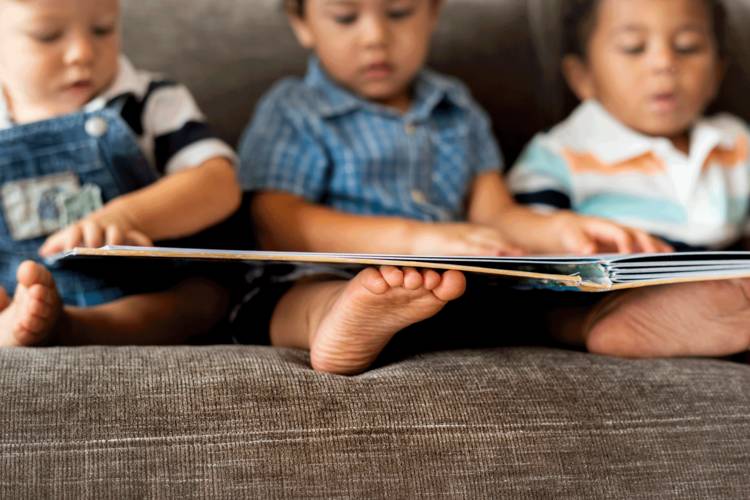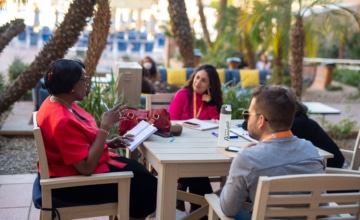This is an exciting time as older toddlers are using their growing language skills to tell you what they are thinking and feeling.

They are also building friendships with other children. And their growing physical skills—walking, running, and climbing—help them explore the world in more adventurous ways. What do you find most amazing about your child’s development at this stage?
| What Your Toddler Can Do | What You Can Do |
|---|---|
| I use my body to get me places! | Explore your neighborhood together. |
| I’m using language to understand the world around me. | Ask about your child’s ideas. Acknowledge feelings and teach social skills at the same time. |
| I am getting really good at playing pretend. | Use pretend play to help your child handle challenging situations. |
| I want to make friends but still need help with sharing. | Give your child regular chances to play with children her age. |
Spotlight on Toilet Training
When and how you help your child learn to use the potty depends on how ready your child is. Your culture—your family’s beliefs and values about toilet training—also matters. There is not one “right” way to toilet train your child.
- Most children develop control over their bowels and bladder by 18 months. This is necessary for children to physically be able to use the toilet. How emotionally ready a child is to use the potty depends on the individual child.
- Starting to train your child earlier does not necessarily mean she will learn to use the potty sooner. One study showed that children whose parents started training them before 27 months took longer to learn to use the potty compared to children whose parents started after 27 months.
- Finding a toilet training method that works for your family is the key. No matter how you do it, remember that potty training takes time, with many accidents along the way.
- Children with special needs may take longer to learn to use the potty. They may also need special equipment and a lot of help and patience from you. For questions about toilet training, talk with your health care provider or early intervention specialist.





